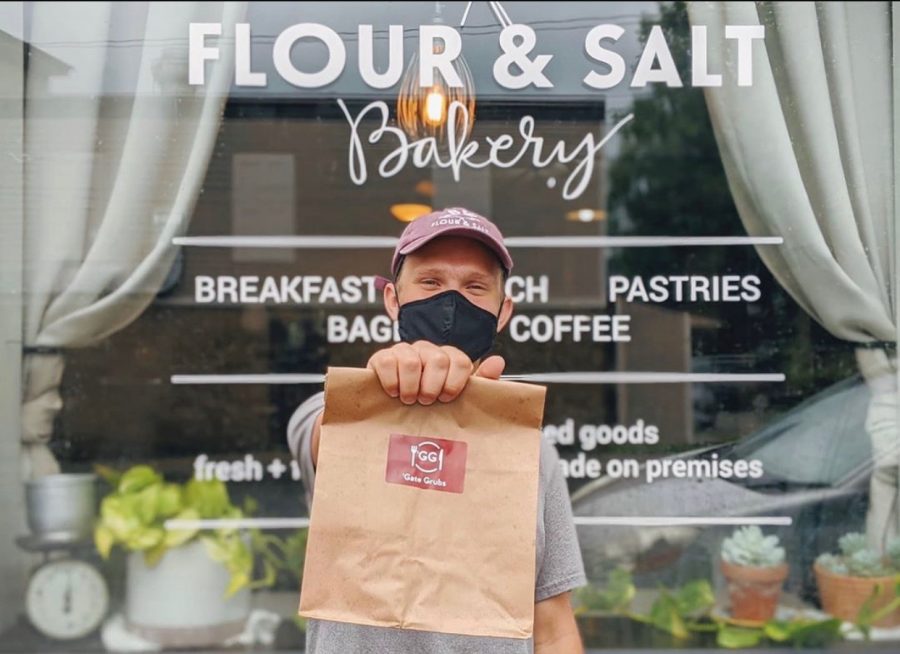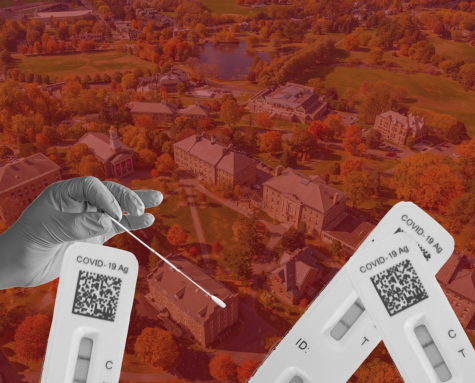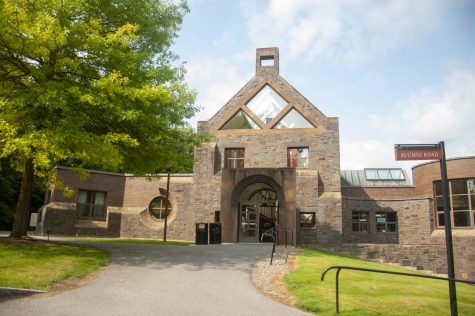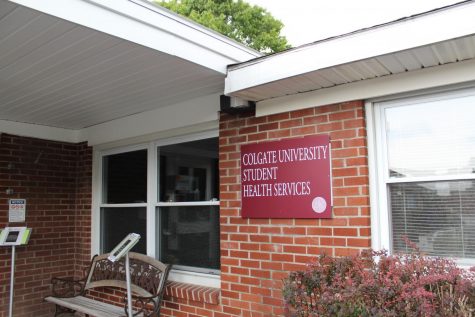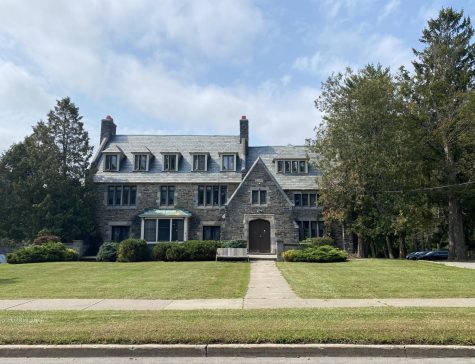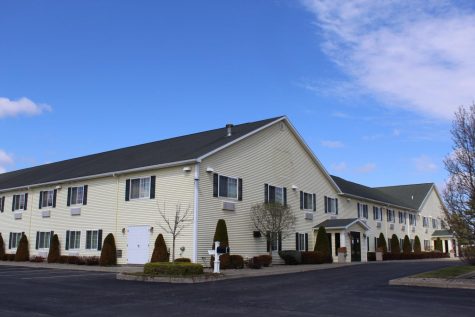Hamilton Businesses Adapt to Influx of Students in Hamilton, Provide Delivery Options During Quarantine
After losing their most profitable spring months when students were sent home in March and the COVID-19 pandemic sent the country into lockdown, Hamilton business owners say they have mixed feelings with most students now back on campus for the fall semester.
Among them is Flour & Salt owner Britty Buonocore ‘12 MA ‘13, who said while she’s sympathetic with the University and its students in wanting to return, the precedent set by other colleges amid the continued spread of COVID-19 leaves her skeptical.
“We are wary about students returning to campus given how confident we are that there will be immediate transmission of COVID-19 with so many people coming back to the village from many different regions of the country,” Buonocore said. “Given what has transpired at other colleges and universities, it is hard to be confident that it won’t happen in Hamilton as well.”
Buonocore’s fears of community spread are not without warrant. 31 students have tested positive thus far in the two rounds of universal, on campus testing, with roughly 1000 tests from the last round of testing awaiting results, according to Colgate’s Health Analytics dashboard and daily updates from Vice President of Communications Laura Jack and President Brian Casey.
“Had Colgate decided not to bring students back to campus this fall for in-person learning, we would not have been frustrated by this decision,” Buonocore said. “Profit does not outweigh the health and safety of our team members or our local patrons.”
Despite apprehensions about transmission of COVID-19 with students in Hamilton, some businesses say they welcome the influx in business and the return to some sense of normalcy the Colgate community brings.
“We miss the students and also Colgate faculty and staff — that vibrancy, and financially, of course. We’re probably like every other business, we’re hurting, but it is a stress,” Hamilton Whole Foods manager Heather Dockstader ‘04 said.
“I think there is apprehension but also some excitement about it because there will be such a big boost to the businesses,” said Hamilton Partnership for Community Development (PCD) Executive Director Jennifer Marotto Lutter. “Colgate has done a great job of communicating their plan to the community and being open to questions, which I think has helped a lot.”
The PCD, a nonprofit program that partners with the town and village of Hamilton, local businesses and the University in community development projects and initiatives, has helped local businesses in navigating the pandemic since March. They assisted business owners in applying for federal small business pandemic relief funding, assisting in safe reopening and notably raising over 130 thousand dollars through their small business fund in the spring that they’ve allocated to 30 area businesses and to future community development projects.
The PCD’s most recent projects partnered with local businesses in facilitating pre-ordering and contactless pickup options for students and families arriving in Hamilton during move-in. They also partnered with ‘Gate Grubs, a student-led Thought Into Action (TIA) venture providing delivery from Hamiltlon restaurants to campus residences during quarantine.
“They were already working on a concept for delivery anyway through their TIA venture, so we found that out and decided to work with them to launch this,” Lutter said. “We feel that it’s a really safe way to help keep the students fed, give them options, but also support our downtown businesses.”
‘Gate Grubs co-founder junior Adrienne Vaughn, who started the venture with juniors Nick Gerlach and Ebrahim Almansob, created the quarantine delivery service with the PCD after talking with Buonocore about how Flour & Salt and other businesses planned to adapt with the return of students.
“We realized quickly that many [businesses] wanted to deliver food, they just weren’t sure how to arrange it in a safe, cost-friendly manner,” Vaughn said. Upon the suggestion of Buonocore, they reached out to Lutter and the PCD, who Vaughn says have been incredibly helpful in facilitating the delivery service. “[They] have held our hands through this entire process. Not only have they assisted us financially, they have also assisted us with logistics.”
‘Gate Grubs’ offers daily lunch and delivery options from a rotating array of Hamilton restaurants including Flour & Salt, Hamilton Whole Foods and Royal India Grill (RIG). The service, which requires students to order at least 24 hours in advance via their website, will operate through the end of the quarantine to all on and off campus student residences, and most recently to the Wendt Inn, where students who have tested positive and many of their close contacts are isolated.
“We knew that access to our favorite restaurant food would be limited throughout the semester, so we wanted to make sure that students could still have access in a COVID-19 friendly manner. We also really wanted to help out the restaurants during this economic slump,” Vaughn said.
Vaughn said ‘Gate Grubs plans to continue offering delivery and adapting their services to the needs of students beyond the quarantine period.
“We really want to use these two weeks as a testing period,” Vaughn added. “After the quarantine, we will adapt based on student demand, restaurants’ availability [and] interest, and figure out what works, what didn’t and adapt.”
For Buncore and Dockstader, while the return of Colgate students brings both fear of virus spread and of business influx, they feel prepared in the systems they have established to ensure safety while still providing the food many students and community members love.
“We have honed our online ordering system for the past [six] months to cut down on the number of people inside the shop,” Buonocore said.
Hamilton Whole Foods created its first website that includes hours, safety procedures and a regularly updated grocery inventory list of in stock items which patrons can use to place grocery pickup or delivery orders by phone or email. Dockstader said the challenge of running the grocery store and the restaurant that encompasses the business through the pandemic has been a challenge, but their regular patrons have been flexible and supportive.
Both said they anticipate making changes to how they operate should the influx of students cause considerable community spread. Neither plan to open cafe seating in the foreseeable future.
“We’re confident that there will be immediate transmission within the first few weeks of students returning,” Bonocore said. “If students remain on campus despite an increase in cases, we will immediately return to ordering online or over the phone only and will not permit customers inside to order.”
Despite the influx of business the student body brings to Hamilton, the risk to the community is on the minds of many.
“As a small business, if Monica [the owner] or I got sick, we would not be open, which might mean that we might not be here [as a business], so it’s a very real risk. It’s a risk not only of life, but of livelihoods,” Dockstader said. “It could possibly decimate the town, depending on who gets sick.”

Kirby Goodman is a senior from Minneapolis, Minnesota concentrating in peace and conflict studies with a minor in political science. She's previously served as...


